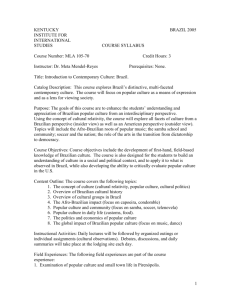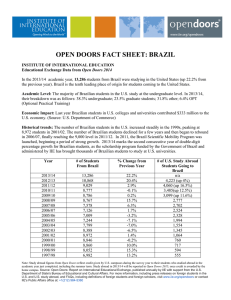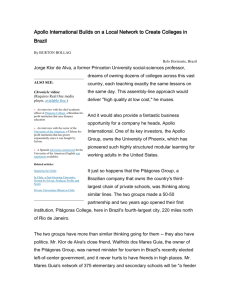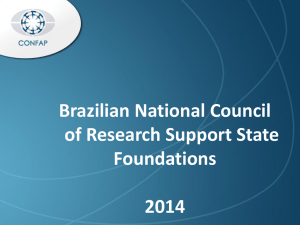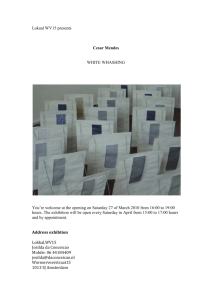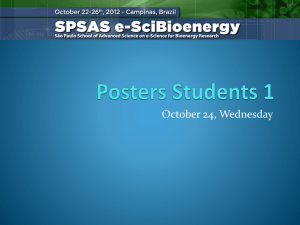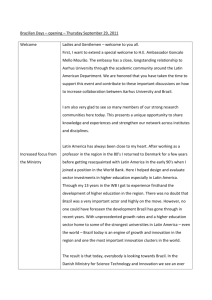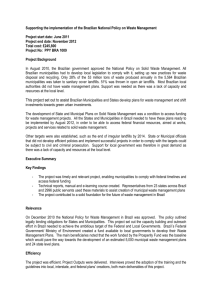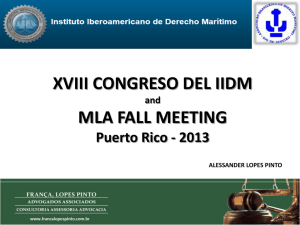Alexandra Brentani
advertisement
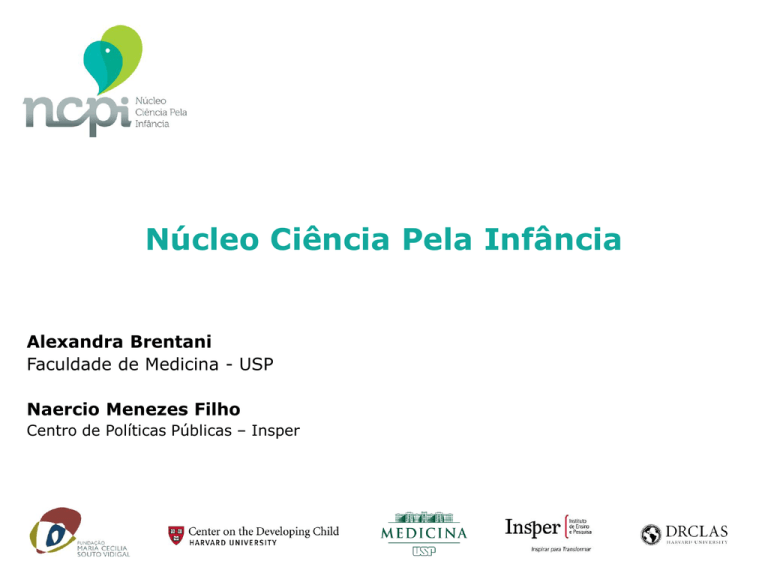
Núcleo Ciência Pela Infância Alexandra Brentani Faculdade de Medicina - USP Naercio Menezes Filho Centro de Políticas Públicas – Insper Introduction Núcleo Ciência Pela Infância seeks to leverage scientific knowledge to inform new strategies that will improve well-being and life outcomes for vulnerable children and support sustainable social and economic development in Brazil. Introduction • Healthy child development is the foundation of strong communities, economic prosperity, and a just society • A rapidly growing, multi-disciplinary body of scientific evidence shows that early experiences are built into the body and affect biological systems that can influence learning, behavior, and health across the lifespan. • New knowledge & advances in the behavioral and social sciences -> new opportunities for more effective strategies to address unmet challenges in education, economic development, health promotion, and social welfare. A dynamic partnership Goals Building a unified science of child development to explain the early roots of lifelong health, learning, and behavior in Brazil; Translating and communicating science effectively to inform the public discourse around issues that affect children and families; and Preparing leaders to leverage the science of healthy development in the design and implementation of innovative policies and programs that reduce preventable disparities and promote greater well-being for all Brazilian children. Core program activities 1. Building a Brazilian scientific community to address early childhood development 2. Translating the science for non-scientific audiences 3. Shaping public discourse 4. Building leadership capacity and catalyzing innovative policies and programs Building a Brazilian scientific community to address early childhood development • Identify the strengths and gaps in the existing body of knowledge • Build a scientific consensus around topics that have the potential to be applied in policy and practice • Promote a national research agenda to address underexplored areas. • Ongoing exchange of faculty and students between Brazilian universities and Harvard University Translating the science for non-scientific audiences • A large-scale research project to develop a deep understanding of the cultural models that shape how Brazilians think about child development • Use this understanding to develop and test effective ways to communicate the science of child development to expand support for more effective policies and programs in Brazil Translating the science for non-scientific audiences • A team of Brazilian researchers is engaged in a large-scale research project to develop a deep understanding of the cultural models that shape how Brazilians think about child development • Develop and test effective ways to communicate the science of child development to expand support for more effective policies and programs in Brazil. • Draw on the expertise of the Frameworks Institute, an independent nonprofit communications research organization and long-time strategic partner of the Center on the Developing Child. Shaping public discourse Producing a wide range of publications and educational media that give Brazilian policymakers, practitioners, and the general public multiple ways to engage with and understand the science of early childhood development. INSERT: SUPER CEREBRO Shaping public discourse • The translated science forms the basis of a wide range of publications and educational media that give Brazilian policymakers, practitioners, and the general public multiple ways to engage with and understand the science of early childhood development. • This dissemination strategy leverages multiple formats and media, including an annual international symposium, a resource-rich web site (ncpi.org.br), working papers, policy briefs, videos, and direct press outreach. Building leadership capacity and catalyzing innovative policies and programs • Programa de Liderança Executiva en Desenvolvimento Infantil Building leadership capacity and catalyzing innovative policies and programs • Executive Leadership Program in Early Childhood Development-> engage Brazilian leaders in a dialogue on the science of early childhood development and how effective public leaders can apply this science to some of Brazil’s most complex social problems. • Forty-seven public leaders representing the executive and legislative branches of federal, state and municipal government attended the Program. The participants came from 16 states in Brazil, and the 12 federal deputies who attended represent eight different political parties. Alexandra Brentani Faculdade de Medicina – USP Naercio Menezes Filho Centro de Políticas Públicas – Insper www.ncpi.org.br
